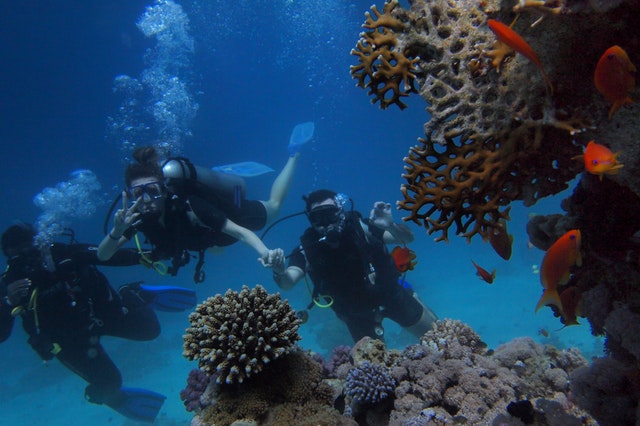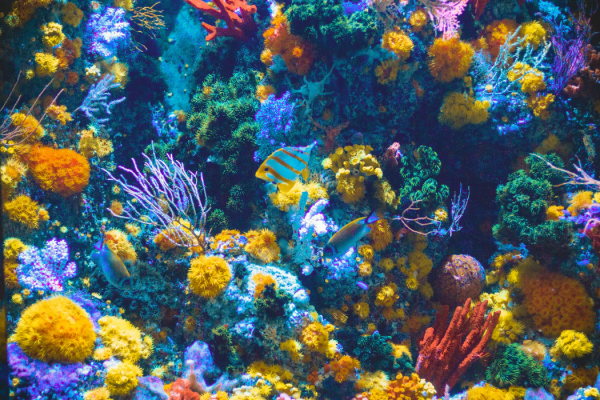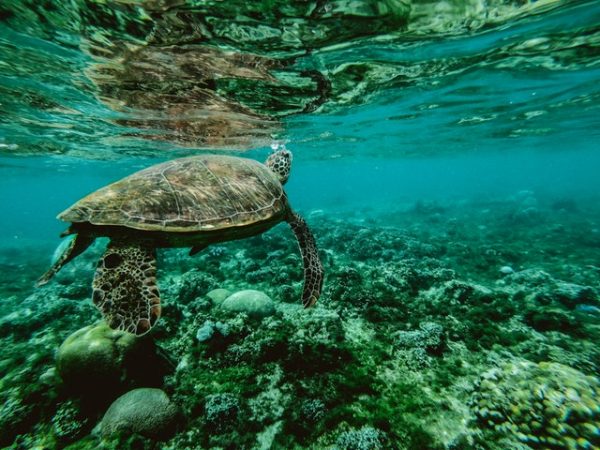Enjoyed by people of all ages from all walks of life, scuba diving is one of the most popular recreational sports in the world. Eerie shipwrecks, amazing marine life, and beautiful coral reefs have become major tourist attractions in their own right. Awesome as it is, scuba diving entails some risks. It’s important to remember that every time you go underwater, you are entering a world in which you rely on your skills and equipment to survive.
Scuba Diving Risks
Some of the risks associated with scuba diving include malfunctioning equipment, drowning, arterial air embolism, and decompression sickness or DCS. Does that mean that in scuba diving is a dangerous sport? Not quite. In fact, scuba diving is considered safer than most conventional sports. Though far less likely than you might imagine, incidents of scuba diving accidents do occur. But, proper training and preparation minimize the risks. Take these precautions into consideration before you go scuba diving.
Check Your Equipment/Gear
Do not be lazy when it comes to checking your gear and equipment before scuba diving. Your survival underwater depends on your equipment. If any of your diving equipment, say your dive watch which helps you keep track of your dive underwater, is faulty, seek professional help. Do not try to fix diving equipment by yourself as you don’t have the technical know-how. It’s just safer to have a professional look at it and fix it.
Learn Dive Signals

Most divers, especially those who are intrigued by marine life are often excited by knowing the signals of various underwater species. While these are important, hand signals relating to safety are the most crucial. Ensure that you and your diving buddies learn all the important hand signals for safety purposes. This ensures that you can accurately and effectively communicate under water in case someone needs assistance.
Stay Alert
Staying alert during scuba diving helps to prevent diving accidents. Divers need to be alert and focused in order to dive safely. That’s why divers are cautioned not to drink alcohol 24 hours before diving. Diving with alcohol in your system is not a good idea. Also, do not dive if you are feeling hangovers or tiredness as you can’t be alert in any of these conditions.
Stay Within Your Limits
Do not dive beyond your limits under any circumstances. Scuba diving doesn’t have a place for bravado or ego; you will be putting yourself at risk by attempting something that you are not qualified for. For instance, cave diving and other forms of specialized diving require additional certification. Complete the relevant certification before you attempt such dives. If you only qualify a certain depth, do not exceed that depth.
Assess Sea Conditions
What is the current condition in your dive site of choice? You need to accurately assess the sea conditions before you dive to ensure safety. Inquire about underwater conditions and avoid potentially problematic situations such as very strong currents or extremely poor visibility. Water temperature is important too as it determines the type of wetsuit to wear. Postpone the dive if the conditions compromise safety.
When it comes to safe scuba diving, planning is vital. Check and verify that your diving equipment and gear is in a working condition a week before the dive. Make sure that everything is maintained and serviced properly. If you have a new piece of equipment, be sure to test it in a controlled environment before trying it out in a dive. Last but not least, make sure that your body is ready to dive. If you are sick or otherwise unprepared, pick another day.



